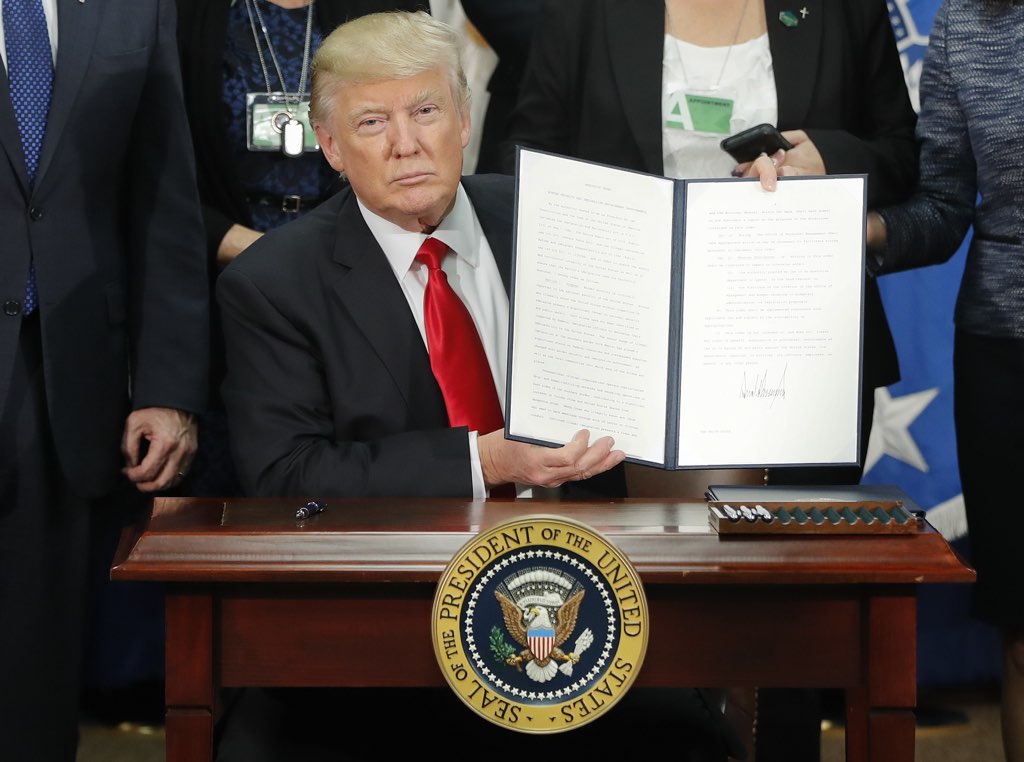Donald Trump signed an executive order Wednesday that requires the Department of Homeland Security to release a weekly “comprehensive list of criminal actions committed by aliens.”
“Can the president really do that?” is a question a lot of people have asked over the course of Trump’s first week in office, and his immigrant-crimes list is not even the most audacious thing he’s done in that time. It is, however, the most dangerous to democracy.
In not distinguishing between illegal and legal immigrants, what the list makes explicit is an idea that’s always been implicit to Trumpism: collective responsibility for minority ethnic groups. It’s the same troublesome logic that caused Trump to blame Muslim communities for failing to root out terrorists in a TV interview nearly a year ago. In this case, it’s not a group of people connected by any affiliation or worldview, just an ideologically neutral and immutable characteristic: They weren’t born here.
This is also the first policy of the administration (that I can think of) that hasn’t even a colorable policy goal. It does not pretend to accomplish anything beyond persuading people that immigrants are dangerous. It’s a purer kind of propaganda than some of his other policies, like the wall, that at least have a rational if tenuous connection to results.
The criminal-immigrants list is a step toward eroding the difference between what it looks like to campaign and to govern in a liberal democracy. Campaigns typically point out social problems; it’s up to governments to enact policies that solve them. It is not a legitimate exercise of democratic power to create a policy whose objective is only to insist a social problem exists. That’s a play best left to authoritarian governments that justify their rule not by the good they do but by the threat they suppress.
The argument for authoritarianism is that it brings stability to chaos–but actual stability would fatally undermine the need for a strongman. So, unlike democracies where governments at least try (or pretend to try) to fix problems, authoritarians remind citizens of their unique ability to keep the disorder at bay. Saddam Hussein had the Kurds. Putin has the Ukrainians, ISIS, the United States, and others.
Such regimes emphasize the isolated acts of individuals in order to demonize a collective. Trump did the same on the campaign trail, as politicians often do. But this is the first time in my memory that the President of the United States has used the machinery of the state for the sole and singular purpose of convincing us an innocent group of persons is a threat. It’s nothing but state-sponsored propaganda, and that should disturb everyone.

















